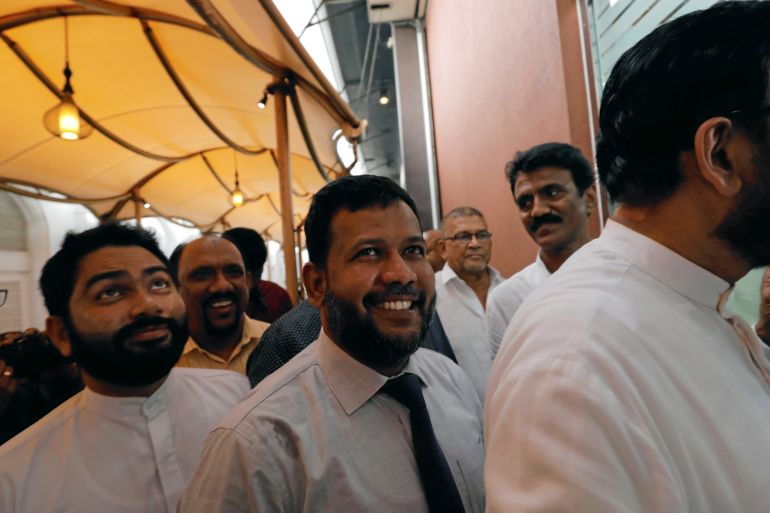Sri Lanka arrests Muslim leader over 2019 Easter Sunday attacks
Bathiudeen and his brother Riyaaj arrested in connection with the attacks that killed 279 people.

The Sri Lankan police have arrested a Muslim leader and member of parliament in connection with the 2019 Easter Sunday attacks that killed 279 people as pressure to speed up the investigation mounted.
Detectives took Rishad Bathiudeen, leader of the All Ceylon Makkal Party, into custody on Saturday under the Prevention of Terrorism Act (PTA), police spokesman Ajith Rohana said, adding that Bathiudeen and his brother Riyaaj were arrested in predawn raids on their homes in Colombo.
Keep reading
list of 3 itemsSri Lanka bans 11 Muslim groups ahead of attacks anniversary
Sri Lanka archbishop criticises gov’t over Easter attacks probe
“They were arrested under the PTA based on circumstantial and scientific evidence that they had connections with the suicide bombers who carried out the attacks,” Rohana said in a statement.
The arrests came three days after the head of Sri Lanka’s Roman Catholic Church, Cardinal Malcolm, accused the government of allowing investigations to stall.
Nearly 200 people were arrested within days of the suicide attacks on hotels and churches, but no one has yet been charged.
Ranjith, who led commemorations on the second anniversary of the Easter attacks on Wednesday, said he was “deeply saddened” by the lack of progress in the investigation.
He renewed his call for swift action against the perpetrators and said “political posturing and the need to safeguard alliances” was hindering the probe.
Although none of the 200 in custody has been indicted, 16 Muslim men among them were charged on Tuesday in connection with desecrating Buddhist statues in December 2018.
The authorities have said the destruction of the statues in Buddhist-majority Sri Lanka was the forerunner to the Easter Sunday attacks four months later.
MPs from Bathiudeen’s party had provided crucial support to President Gotabaya Rajapaksa in October to amend the constitution and give him wider powers over the judiciary and the legislature.
Muslims, who make up nearly 10 percent of Sri Lanka’s 21 million people, have faced increased attacks from majority Sinhala Buddhist hardliners following the end of a civil war between Tamil separatists and government forces in 2009.